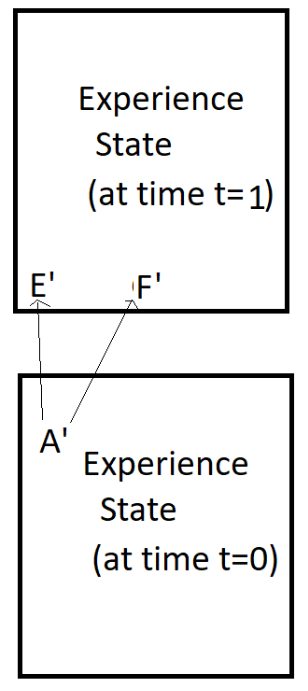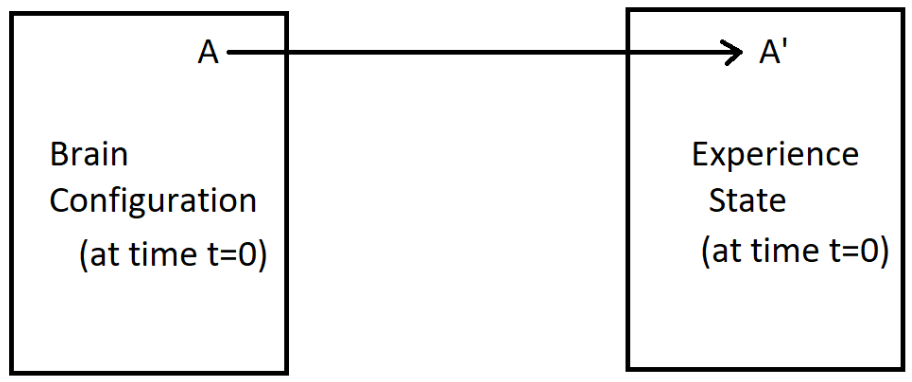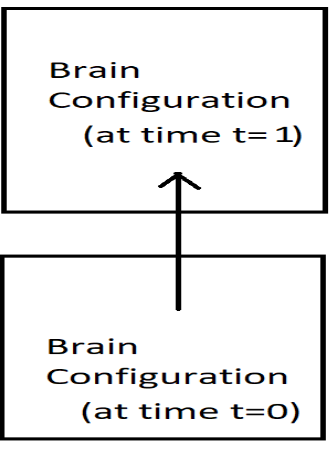Question
The argument seems to say just as I have a physical initial value problem and with the laws of physics tell the time evolution, similarly, I can have an initial value problem of experience and with the different time evolution laws tell you one of the possible experience states one will inhabit in the future.
I don't know what the below argument is known as. And forgive my ignorance for being unaware of the assumptions it makes (I happen to have physics training not philosophy).
Could someone could tell me the name of the argument (if it exists) and the assumptions it makes?
Argument
Let us look at the mappings between the physical configurations of the brain (assume classical mechanics suffices) and the experience state both at a particular point of time (t=0) :
Assume someone is zapping your brain with an electrode to evoke a sensation. Then we can map that physical configuration of the brain (let us call this A) to the sensation one is having (A’)
Now let’s assume I increase the current by one electron then we have a new brain configuration (B) . Is the brain sensitive to this change? No. Then even B maps to A’. We have many-to-one mapping!
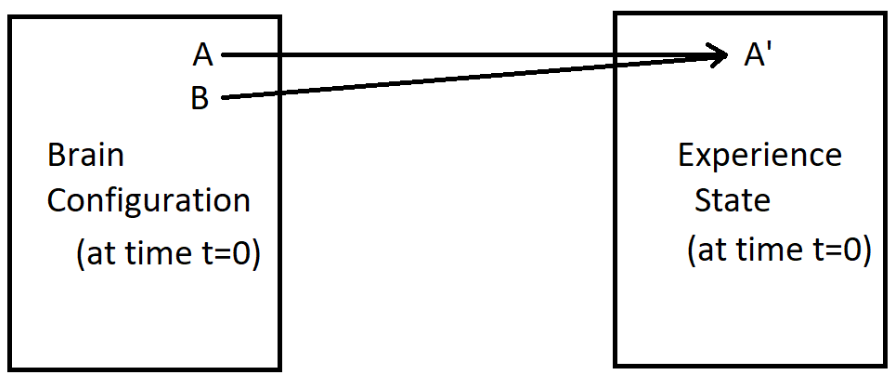
The Time Evolution
The brain configuration has a one-to-one mapping for each brain configuration at t= 0 with the brain configuration at say t = 1 as a function of the environment. This is a consequence of the laws of physics being equivalent to initial value problems
A different environment will give rise to a different brain configuration at time t = 1.
Using this we can map back to experience state and thus get a mapping of the time evolution of the experience state.
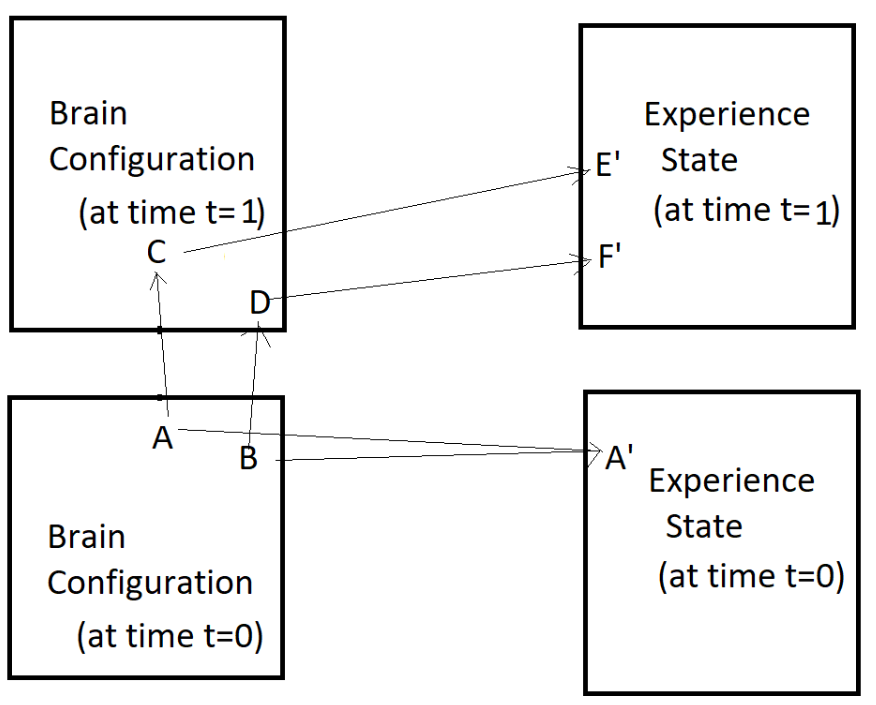
Thus we having a many to one mapping of experience (in the sense given the information I know what I am experiencing at time t = 0 then at time t =1 I either E’ or F’)
